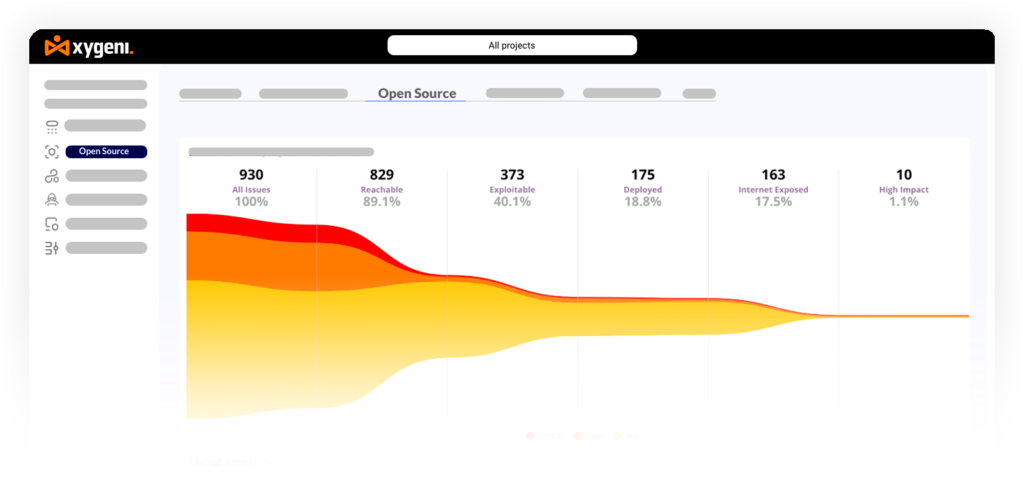Secure Shell (SSH) is a cryptographic network protocol that was designed to help secure communication over unsecured networks. It encrypts data during its transit, ensuring confidentiality, integrity, and authentication for remote connections. This makes it a very important asset for DevOps and DevSecOps workflows, where secure system management and automated deployments are critical.
Definitions:
What is Secure Shell (what is SHH)? #
Developers, system administrators, and security managers use Shell Security to remotely access servers, transfer files securely, and execute commands (all while protecting sensitive credentials and preventing unauthorized access). It is an essential tool in building secure, efficient, and scalable development pipelines. Now that we have explained what is Secure Shell (what is SHH) let’s dive deeper into it.
Key Features of Secure Shell #
- Public Key Authentication – It uses a public-private key pair mechanism to ensure secure, passwordless authentication, aligning with DevSecOps principles of minimizing human error and enhancing security.
- Port Forwarding – DevOps teams use Shell Secure port forwarding to create encrypted tunnels for accessing remote services like databases or APIs during application testing and deployment.
- Secure File Transfers – With protocols like SCP and SFTP built on Secure Shell, teams can securely transfer configuration files, logs, or sensitive artifacts across systems.
- Session Encryption – It ensures all data exchanged during a session is encrypted, protecting communication in dynamic DevOps workflows.
How does it Integrate into DevSecOps and DevOps? #
1. Enhancing Secure Collaboration
In DevOps and DevSecOps environments, teams often rely on Shell Secure protocols to manage distributed systems. The securing of remote accesses makes sure that collaboration happens without exposing critical infrastructure to risks. DevSecOps, which integrates security into every stage of the software development lifecycle (SDLC), uses Secure Shell to enforce best practices in secure communication.
2. Automating Deployments
It is a must for automation in CI/CD pipelines. Tools like Jenkins, Ansible, and GitLab use it for secure authentication and connection during automated deployments. This prevents unauthorized access while ensuring seamless deployment of applications across environments.
3. Protecting Software Supply Chains
With the rise of supply chain attacks targeting CI/CD systems, shell secure practices are crucial for protecting the pipeline. It helps protect sensitive credentials and deployment processes due to its capability of encrypting the communication between build systems and remote servers.
4. Supporting Infrastructure as Code (IaC)
DevOps teams frequently leverage those protocols for managing Infrastructure as Code tools like Terraform or Kubernetes. Secure Shell makes sure secure access to infrastructure is easy, and enables teams to automate provisioning and scaling while maintaining strong security controls.
Is Shell Secure Essential in DevOps & DevSecOps? #
The short answer is yes. Here is why:
Secures Automation in CI/CD – Because DevOps relies heavily on automation to streamline delivery.Protocols like SHH ensure secure connections for running scripts, fetching code repositories, and deploying builds. This reduces manual intervention while maintaining security, a key aspect of DevSecOps integration.
Compliant with Security Policies – Secure Shell enhances secure authentication and encrypted communication. In that way, it helps organizations to be compliant with requirements such as GDPR, HIPAA, or SOC 2.
Prevents Lateral Movement – In the context of DevSecOps, Shell Secure practices help mitigate risks like lateral movement within the network. Limiting access to only authorized users and employing key-based authentication, it strengthens the security of application environments.
For DevSecOps teams, it is not just a tool, it’s a critical component of integrating security into the lifecycle. By securing remote access, automating deployments, and protecting sensitive credentials, Shell Secure practices align with the principles of secure and agile development. Risks can be drastically reduced and operations streamlined with its proper implementation and management.. Ensure robust application security across all your environments!
Some Final Thoughts #
Now that we have learned what is Secure Shell (what is SHH) we know that it is indispensable for DevOps and DevSecOps teams seeking to secure their workflows, automate deployments, and protect sensitive systems. Its ability to encrypt communication, authenticate users, and integrate seamlessly with CI/CD pipelines makes Shell Security a cornerstone of modern software development. By following best practices and leveraging advanced features, organizations can strengthen their Shell Secure strategies and build resilient applications in a fast-paced digital landscape.



